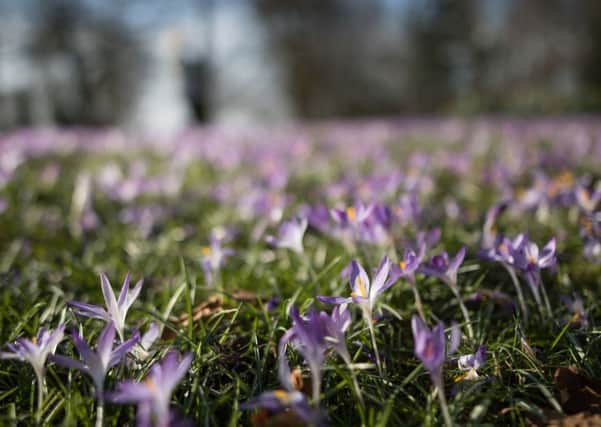Nature’s early awakening makes it vulnerable to cold snap crisis


The RSPB made the grave predication after receiving numerous reports from across the country about birds attempting to nest and breed, butterflies sightings and hedgehogs, reptiles and insects emerging from hibernation, all much earlier than they should.
Even migrant birds, such as the swallow and house martin, are being sighted in the UK far too prematurely, the conservation charity warned.
Advertisement
Hide AdAdvertisement
Hide AdAccording to the Met Office, Monday was the warmest winter day on record after temperatures rose above 20 degrees at Trawsgoed in Ceredigion, west Wales. It was the first time the temperature had exceeded 20 degrees in winter and was the earliest recording in excess of the temperature in a calendar year since March 2, 1977.
The RSPB fears that the conditions could suddenly turn cold, in a similar way to last year when the Beast from the East saw temperatures plummet, bringing snow and rain.
Martin Harper, the charity’s director of global conservation, said: “While the warm weather, bright sunshine and abundant sights and sounds of nature undoubtedly make us all feel better, they should also ring alarm bells. The early signs of spring are likely down to climate change, which is bad news for us all.
“As we expect the weather to return to temperatures more traditionally associated with this time of year – as they are forecast to – then there could be a real crisis for our birds, insects and other wildlife.”
Advertisement
Hide AdAdvertisement
Hide AdThe charity’s wildlife team has even been getting calls from people reporting early young, with ducklings spotted across the country.
Travelling ahead of the ‘Saharan plume’ many birds usually seen in spring are starting to arrive back in the UK after spending a warm winter in Africa. Swallows and house martins have reportedly been spotted in Cornwall, Devon and south Wales weeks ahead of when they would usually be expected to be seen back in the UK.
Charlotte Ambrose, a member of the RSPB’s wildlife team, said the birds were acting on “environmental cues” to start making a nest and breed, and while there could be benefits of an early start, those gains could be wiped out if more typical conditions for the time of year return.
“Because of the extremely mild weather, some birds and other wildlife are starting early. This is not necessarily a bad thing as it may allow some birds to have an extra brood before the main breeding season starts, but if the weather changes back to more normal conditions, the birds may get caught out and struggle to find enough food for themselves and their young,” Ms Ambrose said.
Advertisement
Hide AdAdvertisement
Hide Ad“If invertebrates emerge early they will be here when the early nesting birds and their chicks need them, but again a cold snap could mean they don’t survive.
“Any sudden bad weather can kill-off early flowering plants, which are a source of nectar for insects, meaning they will struggle to find enough food.”
To support wildlife in the event of a cold snap, the RSPB would encourage people to put out energy-rich foods like meal worms and fat balls, as well as nest boxes, in their gardens, and to ensure there is a supply of fresh water for drinking and bathing.